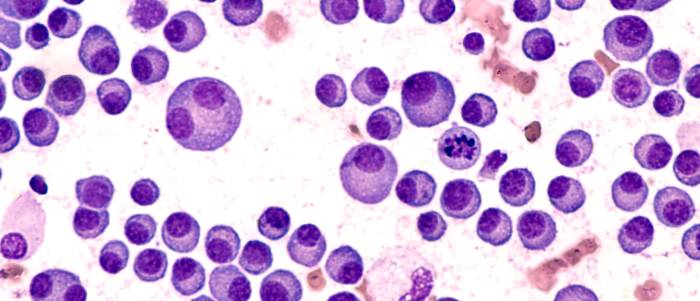POLARIS: OriCAR-017 Elicits 100% ORR in Patients With Relapsed/Refractory Multiple Myeloma
The phase 1, open-label, single-arm study demonstrated favorable safety and robust efficacy for the autologous GPRC5D-directed CAR-T cell therapy.
(Adobe Stock)

OriCAR-017, an autologous GPRC5D-directed CAR-T cell therapy in development to treat patients with relapsed/refractory multiple myeloma (MM), displayed notable efficacy and favorable safety in results from an early-phase trial (NCT05016778) presented at the 2022 American Society of Clinical Oncology (ASCO) annual meeting.1
“100% overall response rate (ORR) and 100% minimal residual disease (MRD) negative rate, along with favorable safety support OriCAR-017 to be a competitive therapy for RRMM,” investigators reported in an oral presentation. “Furthermore, patients who had relapsed from BCMA CAR-T therapy may still benefit from OriCAR-017.”
A team of investigators in China sought to evaluate the tolerability and safety of the second-generation CAR T-cell therapy, which works by targeting the type-C 7-pass transmembrane receptor protein GPRC5D that is expressed on malignant plasma cells in patients with MM.
Adults with MM that was either relapsed, refractory, or intolerant to conventional therapies were enrolled to receive a lymphodepletion chemotherapy regimen of fludarabine 30mg/m2/day and cyclophosphamide 300mg/m2/day for 3 days. Participants then received a one-time infusion of OriCAR-017 in 1 of 3 CAR+ T cell cohorts: 1×106/kg, 3×106/kg, and 6×106/kg.
Between June 9, 2021, and January 31, 2022, 11 patients enrolled and underwent apheresis. To date, 9 patients have completed the infusion, with the 9th infusion delivered on January 23, 2022, and safety and efficacy data are available for 8 patients. Rapid disease progression caused 2 patients to suspend the infusion.
Check out more of Cell & Gene Therapy Live's ASCO 2022 coverage here.
The median age of the 9 patients who received OriCAR-017 was 65 years (range, 41–71) and the median lines of prior therapy was 6 (range, 3–17). Of the patients who attempted 6 prior lines of therapy, 3 (33.0%)/1 (11.0%) were triple-class/penta-drug exposed; 2 (22.0%)/1 (11.0%) were triple-class/penta-drug refractory; and 4 (44.0%) received prior BCMA CAR T-cell therapy.
Median follow-up for the 8 patients for which efficacy data were available was 109.5 days (range 32–195 days). Investigators observed a 100% ORR, with 3 patients achieving complete response/stringent complete response (sCR), 2 patients achieving very good partial response (VGPR), and 3 patients achieving partial response (PR).
Of the 4 patients who had previously received BCMA CAR T-cell therapy, 3 had available efficacy data. One individual achieved sCR, 1 VGPR, and 1 PR. Eight patients registered MRD negative in the bone marrow, as measured by flow cytometry (10-5), at day 28 after infusion, with 5 continuing on at month 3 and 1 at month 6.
As far as safety, investigators reported no dose-limiting toxicities.
“The most common treatment-emergent adverse events were neutropenia (G3/4 100%), thrombocytopenia (G3/4 100%), leukopenia (G3/4 100%), lymphopenia (G3/4 100%), and anemia (G3/4 87.5%),” the research team reported. “All patients experienced CRS [cytokine release syndrome] with 7 patients in G1, 1 patient in G2.”
Incidence of CRS were all resolved with tocilizumab and steroids.
“In this phase I study, OriCAR-017 was showed safe and impressive efficacy in RRMM patients. Majority of [adverse events] were transient and manageable,” investigators concluded.